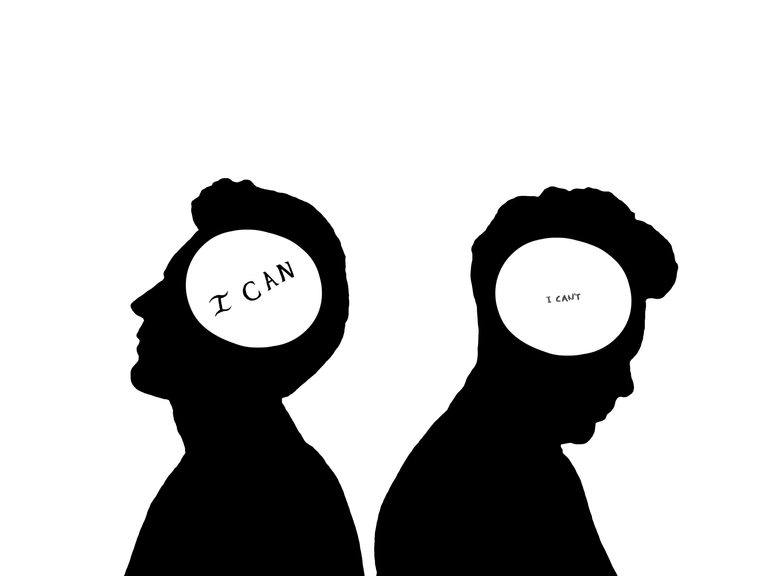This is day 5 of my 100 Days "Bring Value Challenge" to our lovely Steemians!

We have universal, permanent and interal styles
Whenever we experience a negative event in our lives, we always explain it to ourselves in one of two ways:
Optimistically or Pessimistically
But what exactly characterizes our style?
First, pessimits consider problems to be permanent, while optimists consider them only temporary.
Second, where optimists think of problems as being specific to a certain situation, pessimists tend to generalize.
Third, while optimists tend to consider negative events as being externally caused, and positive events as internally caused, pessimists usually think of these the other way around.
Luckily, the ways in which optimists and pessimists make sense of bad events are not set in stone: all three behavioral patterns can be changed.
Pessimism and Optimism are both habits of thinking
Our explanatory style derives from our individual experience. Depending on our life experiences, we become either pessimists, believing we have no control over our fate, or optimists, feeling a sense of control over our destinies.
Human thinking habits are learned, mostly during childhood and mainly from parents and schoolteachers.
The most important takeaway is that, since our explanatory style is learned, we can change the way we "talk" to ourselves: even if you've acquired a pessimistic style in childhood, you're not condemned to use it forever.
Optimists have a better immune system
The positive effects of an optimistic outlook are far greater than most of us assume. For instance, compared with their pessimistic peers, optimists are generally healthier.
On a cellular level, optimists often have a stronger immune system. For example, studies that induced a state of inescapable helplessness in rats have shown that their immune systems produce fewer T-cells - cells that are crucial to immune system response.
Secondly, because optimists tend to be more active than pessimists, they're more likely to take good care of themselves.
Thirdly, optimistic people find it easier to sustain frinedships, and friendship is beneficial to our health. This is because having a friend that you can confide in and discuss anything and everything with actually eases the stress generated by negative life events.
Pessimism promotes depression
At this point in history, the Western world is witnessing an epidemic of depression: at any given moment, approximately 25 percent of the population is experiencing some form of depression!
Negative life events cannot be the main cause of depression. While it's normal to respond to negative events in our lives with mild depressive symptoms - like a bad mood - not everbody responds to such events by becoming seriously depressed.
So, if negative events themselves aren't the cause of depression, what is?
Our explanatory style
How we think about those events is a determining factor whether or not we become depressed.
Talent is overrated if it's not matched by optimism
This benefit can be seen even in children, as those with an optimistic style do better in the classroom than their pessimistic peers.
In one experiment, two groups of children - one optimistic, the other pessimistic - were given solvable math problems. In this first trial, both groups performed equally well.
In a second trial, however, the math problems were switched for unsolvable ones.
The pessimistic children gave up, refusing to continue with the task. In contrast, the optimistic children, while aware that they were making mistakes, continued in their efforts to solve the problems by using their existing strategies.
Optimism is also very useful in your professional life
Why do some people seem to thrive at every job they do, while others barely scrape by?
People with an optimistic explanatory style are better suited for occupations that involve a lot of rejection. This is especially true in sales jobs that involve cold calling: in this environment, having an optimistic explanatory style will determine whether you will thrive or quit.
Change your self-talk by using the ABC technique
Now that you've seen the devastating effects a pessimistic explanatory style can have on your life, you might reasonbly wonder: "How can I change from a pessimist into an optimist?"
First, it's important to monitor yourself in order to observe the link beetween adversity, belief and consequence in your life.
Consider this everday example:
Adversity: A love interest doesn't return your phone calls.
Belief: He or she doesn't like me. My jokes are not funny. I'm ugly.
Consequence: You feel depressed all day.
But it's not always easy to recognize these ABC's in your own life, as most of our self-talk is unconscious. Nevertheless, you should try to listen to your self talk, so you can observe their negative effect on your life.
To do this, try to record all three ABC components when examining your negative self talk.
Once you have found a few ABCs in your life, you are then in a position to change them.
Congratulations @arnasklas! You received a personal award!
You can view your badges on your Steem Board and compare to others on the Steem Ranking
Vote for @Steemitboard as a witness to get one more award and increased upvotes!